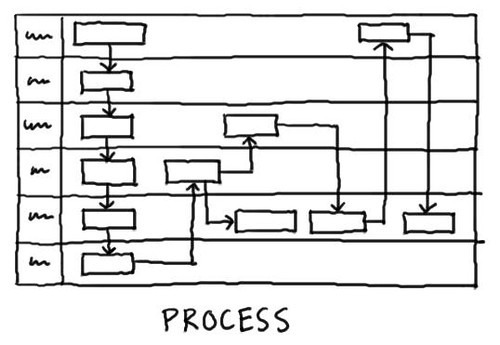
process (verb) 1530s, “begin legal action against” from French processer “to prosecute”
In April, a UN News story said: “A deal reportedly made by the United Kingdom to send some migrants for processing and relocation to the Central African nation of Rwanda, are at odds with States’ responsibility to take care of those in need of protection.”
The word “processing” cropped up in quite a few news stories on this subject. It is reminiscent of other forms of processing which give us such things as processed cheese and processed meat.
The Oxford English Dictionary tells us that the first use of “process” to mean putting people through a legal process started in Scotland at the end of the 15th century. In 1532, for example, someone would be “processit” for not paying tax. Processing food crops up first in the US (1878) when glucose was added to honey. Six years later we hear of ozone being added to meat to make it processed. Our supermarkets have been full of processed food ever since.
The specific use of “process” to mean subjecting a person to registration seems to begin in the 1920s, again in the US. The New York Times reported in 1925 that policemen were “processed” before being given uniforms. By 1935 (still in the US), we find applicants being put through medical examinations and “transported to army camps to be ‘processed’.”
We get a sense that people began to find the word discomforting; the Times Literary Supplement noted in 1959 that some great books of French culture about “wild boys” like Maupassant or Gauguin were being processed, “attractively jacketed, to emerge as items suitable for ticking off on library lists”. Even more explicitly uneasy is one D. Ginsberg saying in 2000 that he “checked into the main office and was processed like a piece of salmon caught in a net”.
So it is in 2022, we wait and see if Rwanda will indeed set up “processing centres” for people who tried to come to the UK. Lord Alf Dubs, a former “kindertransport” child, is determined that the “process” won’t happen. He, more than anyone, knows how human beings were processed during the horrors of the mid-20th century.
This piece is from the New Humanist summer 2022 edition. Subscribe here.

